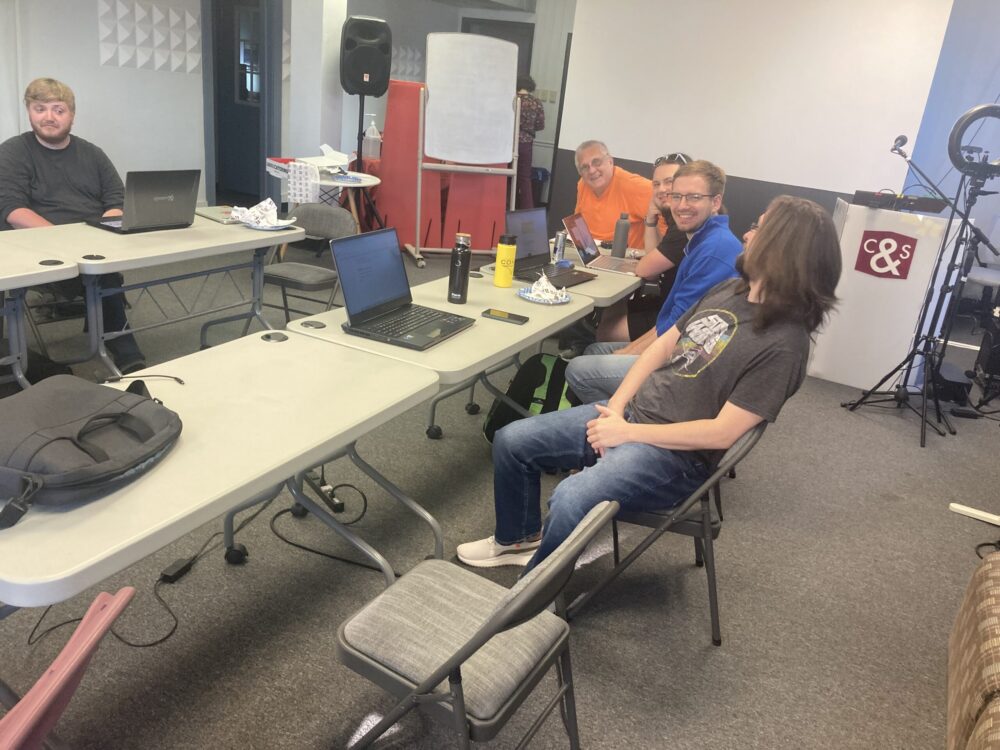Since the group was founded in 2014, the local brigade of the national civic hacking group Code for America has been a small but mighty force for good. It’s participated in a National Day of Civic Hacking, when participants crowdsourced web mapping services for disaster response and communities in need around the world. It’s responsible for solving the age-old Lent problem of where to find a fish fry by creating an online, interactive fish fry map circa 2016.
And now, Code for Pittsburgh organizer Max Chis told Technical.ly, the volunteer group is using Monday nights to make Pennsylvania state legislation more accessible.
“We’re trying to make a more easily searchable database,” Chis said — “a database that tags pieces of legislation so that they can be more easily identified.”
The group is also attempting to use ChatGPT and other large language models to summarize the contents of the legislation so it can be easier to understand by the average citizen, or anyone without the resources to be able to devote hours and lawyers to reading dozens of laws to figure out which ones are the most relevant to them. Not only that, but the group is interested in setting up a notification system so residents can receive alerts when laws relevant to them are introduced.
Chis, a software engineer for Westinghouse by day, hasn’t been with Code for Pittsburgh for as long as the group has existed. But as its current leader, he’d like to see the group be a community where likeminded technologists can meet each other. That was the draw of the group when Chis first joined, and in his observations, others have come along for the ride because they sought a place where they could give back while forging new connections.
“A lot of times they’re new in town and they’re looking to meet new people who share similar interests,” he said. “Sometimes they’re attracted by the mission. Sometimes they’re attracted by the tools we’re working with.”

Recently, they’ve also been working on a food access map that aims to show where food is accessible in the Pittsburgh region, and whether or not a place accepts SNAP EBT benefits.
When they’re not working on projects, Code for Pittsburgh hosts the occasional social hour so that the group can interact in a more casual way. The group’s meetings are help at Code & Supply’s coworking space on Friendship Avenue.
“Code & Supply hosts Code for Pittsburgh because it’s the kind of organization we want to see more of in the world,” Managing Director Colin Dean said. “They’re doing important work with practical applications, filling in gaps and making things that government and the taxpayers haven’t yet understood the value of having. Code for Pittsburgh is a healthy group with an inclusive culture great for folks who want to do fun and interesting projects with open government data.”
At one point, the group had an active attendee core, and it still counts more than 1,800 members on its Meetup.com page. Yet as with many tech meetups, it wasn’t immune to the effects of COVID-19. In 2020, the group had to pause in-person meetings in favor of virtual settings, and now that it’s back to meeting IRL, it tends to attract about a dozen people per week.
Chis said the group is still rebuilding from its pandemic slowdown.
“From my perspective, we had quite a burgeoning group of people prior to the pandemic,” Chis said. “And then around the time of the pandemic, when a lot of social stuff had to be curtailed or moved virtual, we saw a gradual shrinking down the number of people who were attending our meetings, until we eventually had a skeleton group, maybe three or four people.”
The organizer hopes that as the group grows, it can get back to a pace of working on multiple projects at a time. In the meantime, he feels it’s important to build up a consistent routine and a core group of volunteers while allowing flexibility for new volunteers.
“Code for Pittsburgh is something that is very intentionally designed to be a collective project,” Chis said. “I am technically the leader. But one thing I really try to emphasize is that it is something where people can get out of it what they put into it, people are able to start their own projects, and I think that gives it a lot of potential because it allows people to really come in and cultivate their own skills and learn things with a group of like-minded people, and potentially develop something that can be very useful for them.”







